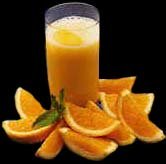
What Is It?
And Where Does It Come From?
 Inositol is a vitamin that is utilized by the body for a variety of metabolic processes. It is a simple carbohydrate and is essential to human health.
Inositol is a vitamin that is utilized by the body for a variety of metabolic processes. It is a simple carbohydrate and is essential to human health.
Inositol is a member of the b-complex family of vitamins, but is not the same as inositol Hexaphosphate or inositol hexaniacinate.
Dietary sources of inositol include nuts, beans, wheat and wheat bran, cantaloupe, and oranges.

What Does It Do?
And What Scientific Studies Give Evidence To Support This?
Inositol is necessary for many physiological processes.
Inositol is used by the body to form cell membranes, and it allows for the proper functioning of cells. As a dietary and exercise aide, inositol assists in the transmission of nerve signals, and helps to transport lipids within the body. This will help you contract your muscles more efficiently and will help you to use body fat as fuel for your workouts.
Inositol is known to assist enzymatic activity, reduce cholesterol levels, control estrogen levels, prevent the formation of breast lumps, and it has been shown be efficacious to bone marrow, brain cells, the eyes and the intestines.
 |
||||
 |
|
 |
||
 |
||||
This substance can improve renal functioning1, and can be used as a treatment for depression3,4,5,6 alzheimer's disease, panic disorders, and obsessive-compulsive disorders. Inositol is also effective as a local analgesic7, and in utero it may prevent neural tube defects like spina bifida in developing humans.9

Who Needs It?
And What Are Some Symptoms Of Deficiency?
Individuals who require inositol supplementation may include: persons with diabetes, galactosemia, chronic renal failure, multiple sclerosis, post-traumatic stress disorder, or recovering alcoholics or the obese. Inositol helps to regulate blood sugar levels and it also prevents the accumulation of fatty tissues in the liver. In this way it can prevent fatty-liver disease that is common in the obese and recovering alcoholics. Persons suffering from depression are often deficient in inositol and may benefit from supplementation.2
Those on long-term anti-biotic regimens may also require inositol as such persons are frequently inositol-deficient.
Symptoms of deficiency can include eczema, hair loss, constipation and elevated serum cholesterol levels.
Chronic alterations in available inositol levels may result in altered central nervous system function and eventual neurological disorders.

How Much Should Be Taken?
And Are There Any Side Effects?
Dosing guidelines are dependant upon physiological requirement.
Although the recommended daily allowance is 100mg daily, dosages of 500mg twice daily have been suggested as efficacious.
For treatment of depression, anxiety and obsessive- compulsive disorder, a dosage of 12-18 grams per day has been shown to be effective.10, 11, 12, 13
No known cases of inositol toxicity have been reported in literature, but diarrhea may be indicative of overdose.
Pregnant women should consult with a physician prior to supplementing with inositol as inositol has been seen to induce uterine contractions and may contribute to early delivery.8
Persons with Attention Deficit Hyperactivity Disorder (ADD / ADHD) should consult with a physician prior to supplementation with inositol as it may antagonize (make worse) their condition. Inositol can cause adverse reactions in the presence of lithium. Persons undergoing lithium treatment should consult with a physician prior to inositol supplementation.
REFERENCES
1. Kitamura H, Yamauchi A, Sugiura T, et al. Inhibition of myo-inositol transport causes acute renal failure with selective medullary injury in the rat. Kidney Int 1998;53:146-153.
2. Barkai A, Dunner D, Gross H, et al. Reduced myo-inositol levels in cerebrospinal fluid from patients with affective disorder. Biol Psychiatry 1978;13:65-72.
3. Levine J. Controlled trials of inositol in psychiatry. Eur. Neuro. Psycho. pharmocol. 1997;7:147-155.
4. Cohen H, Kotler M, Kaplan Z, et al. Inositol has behavioral effects with adaptation after chronic administration. J Neural Transm 1997;104:299-305.
5. Levine J, Barak Y, Gonzalves M, et al. Double-blind, controlled trial of inositol treatment of depression. Am J Psychiatry 1995;152:792-794.
6. Levine J, Barak Y, Kofman O, et al. Follow-up and relapse of an inositol study of depression. Isr J Psychiatry Relat Sci 1995;32:14-21.
7. Tarnow P, Cassuto J, Jonsson A, et al. Postoperative analgesia by D-myo-inositol-1,2,6-triphosphate in patients undergoing cholecystectomy. Anesth Analg 1998;86:107-110.
8. Phaneuf S, Europe-Finner G, Carrasco M, et al. Oxytocin signalling in human myometrium. Adv Exp Med Biol 1995;395:453-467.
9. Greene N, Copp A. Inositol prevents folate-resistant neural tube defects in the mouse. Nat Med 1997;3:60-66.
10. Levine J, Barak Y, Gonzalves M, et al. Double-blind, controlled trial of inositol treatment of depression. Am J Psychiatry 1995;152:792-4.
11. Levine J, Barak Y, Kofman O, Belmaker RH. Follow-up and relapse analysis of an inositol study of depression. Isr J Psychiatry Relat Sci 1995;32:14-21.
12. Benjamin J, Levine J, Fux M, et al. Double-blind, placebo-controlled, crossover trial of inositol treatment for panic disorder. Am J Psychiatry 1995;152:1084-6.
13. Fux M, Levine J, Aviv A, Belmaker RH. Inositol treatment of obsessive-compulsive disorder. Am J Psychiatry 1996;153:1219-21.
 To View Top-Selling Inositol Products, Click Here.
To View Top-Selling Inositol Products, Click Here.

